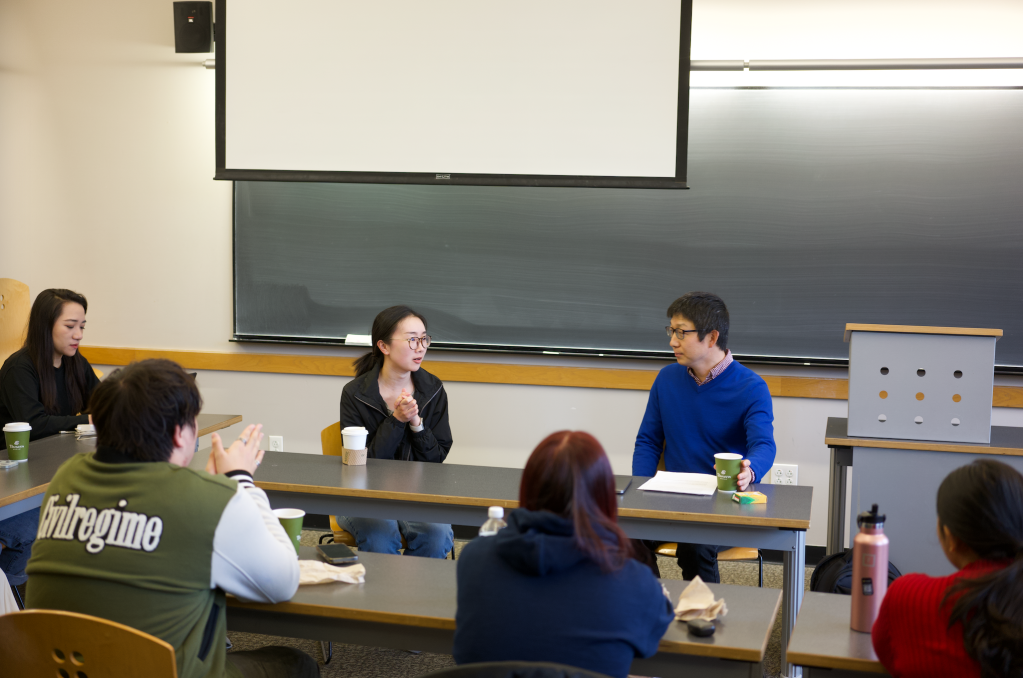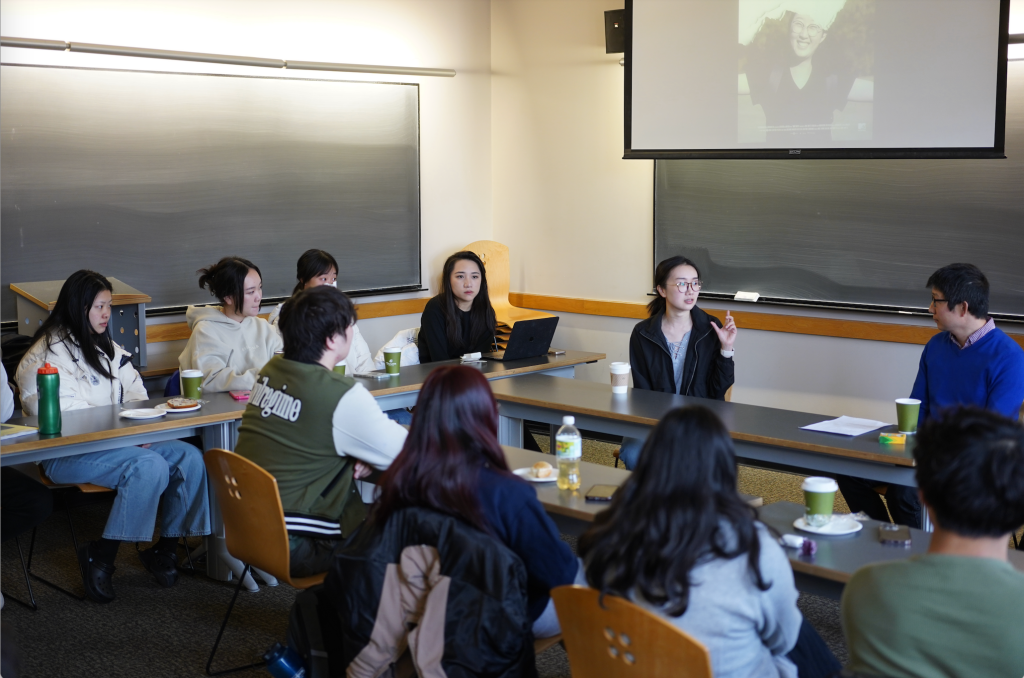During the winter of 2020, in the heat of the presidential election, international students, especially those from China, became easy scapegoats targeted by some mean and malicious politicians in the U.S. I was angry. I was infuriated. I designed and offered a course that I called “Overseas Encounters: Reading the World through Students Abroad”. The subtitle is too long to fit into the registrar catalogue, but I insist on keeping it on my syllabus. This is a course about international students, those to and from U.S., who travers the world and make history.
The 2021 spring course was taught online, with students participating from around the world–thanks to covid. While searching for materials for this class, I ran into the documentary about Finding Yingying directed by Jenny Shi. My students watched the movie and had a virtual conversation with Jenny.
Two weeks ago, in the spring of 2023, Jenny visited Vanderbilt and met with my students in the Overseas Encounters class. It’s such a powerful movie; Yingying’s dead body was not found, but Yingying is discovered and remembered by all of us thanks to Jenny’s courageous work.
Students in my class shared their experiences of accepting rides from strangers in the U.S., about the challenges related to languages, religions, and ideas about race and gender. One student who transferred from UIUC talked about passing by Yingying’s tombstone on the roadside every day.
I also recall that, fourteen years ago, I borrowed money from my former college roommate to buy a one-way ticket to attend graduate school in the U.S. It’s been more than a decade. Now we encounter each other in this classroom, former and current international students.
Thanks so much to Jenny Shi for producing this documentary and for visiting Vanderbilt and my class. We are trivial beings; but we are all significant enough to be known and remembered.







